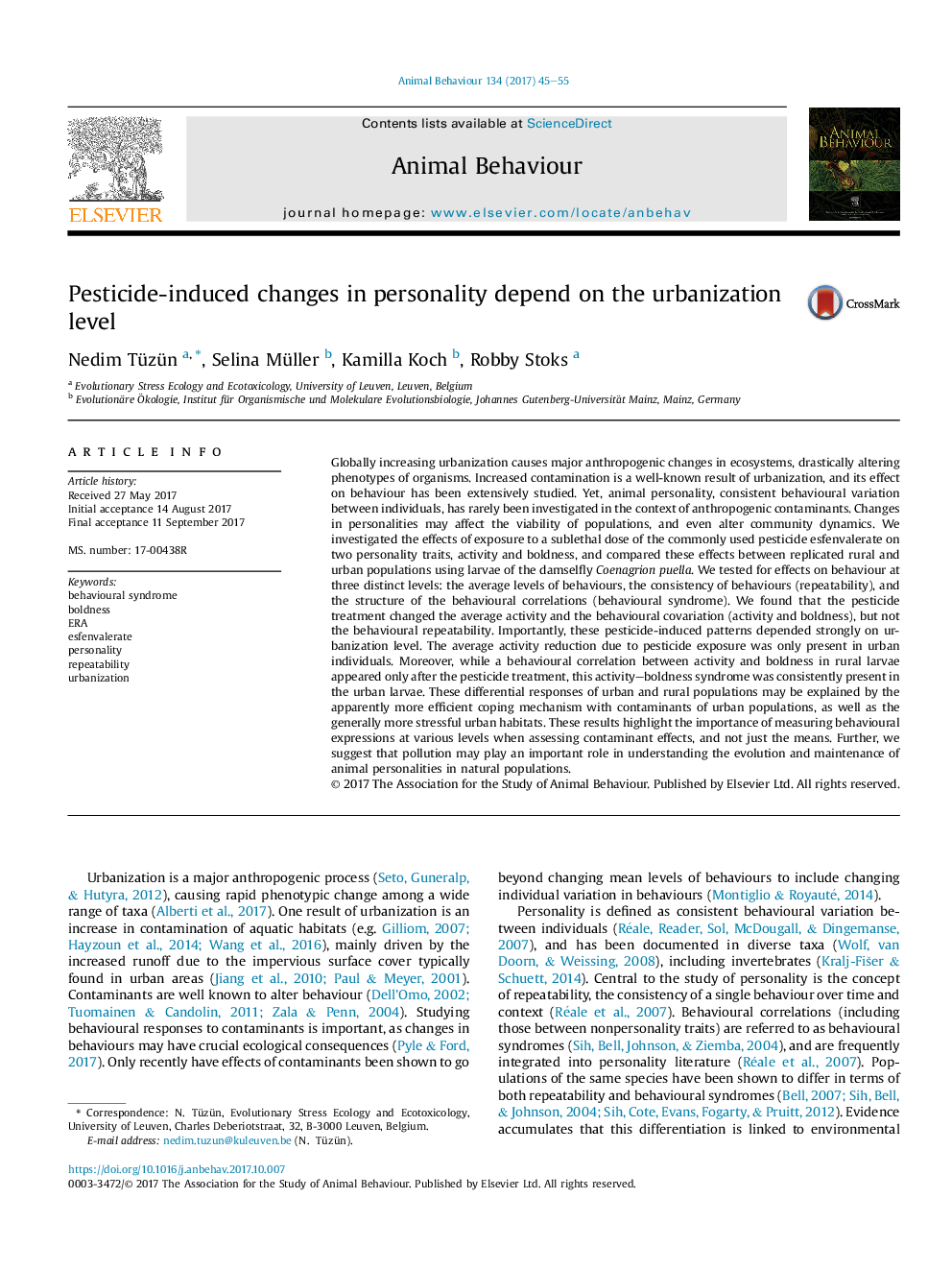| Article ID | Journal | Published Year | Pages | File Type |
|---|---|---|---|---|
| 8488773 | Animal Behaviour | 2017 | 11 Pages |
Abstract
Globally increasing urbanization causes major anthropogenic changes in ecosystems, drastically altering phenotypes of organisms. Increased contamination is a well-known result of urbanization, and its effect on behaviour has been extensively studied. Yet, animal personality, consistent behavioural variation between individuals, has rarely been investigated in the context of anthropogenic contaminants. Changes in personalities may affect the viability of populations, and even alter community dynamics. We investigated the effects of exposure to a sublethal dose of the commonly used pesticide esfenvalerate on two personality traits, activity and boldness, and compared these effects between replicated rural and urban populations using larvae of the damselfly Coenagrion puella. We tested for effects on behaviour at three distinct levels: the average levels of behaviours, the consistency of behaviours (repeatability), and the structure of the behavioural correlations (behavioural syndrome). We found that the pesticide treatment changed the average activity and the behavioural covariation (activity and boldness), but not the behavioural repeatability. Importantly, these pesticide-induced patterns depended strongly on urbanization level. The average activity reduction due to pesticide exposure was only present in urban individuals. Moreover, while a behavioural correlation between activity and boldness in rural larvae appeared only after the pesticide treatment, this activity-boldness syndrome was consistently present in the urban larvae. These differential responses of urban and rural populations may be explained by the apparently more efficient coping mechanism with contaminants of urban populations, as well as the generally more stressful urban habitats. These results highlight the importance of measuring behavioural expressions at various levels when assessing contaminant effects, and not just the means. Further, we suggest that pollution may play an important role in understanding the evolution and maintenance of animal personalities in natural populations.
Related Topics
Life Sciences
Agricultural and Biological Sciences
Animal Science and Zoology
Authors
Nedim Tüzün, Selina Müller, Kamilla Koch, Robby Stoks,
